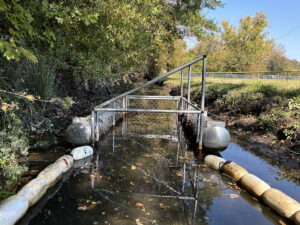News
SELC, Sound Rivers weigh in on Coastal Habitat Protection Plan
Posted on October 28th, 2021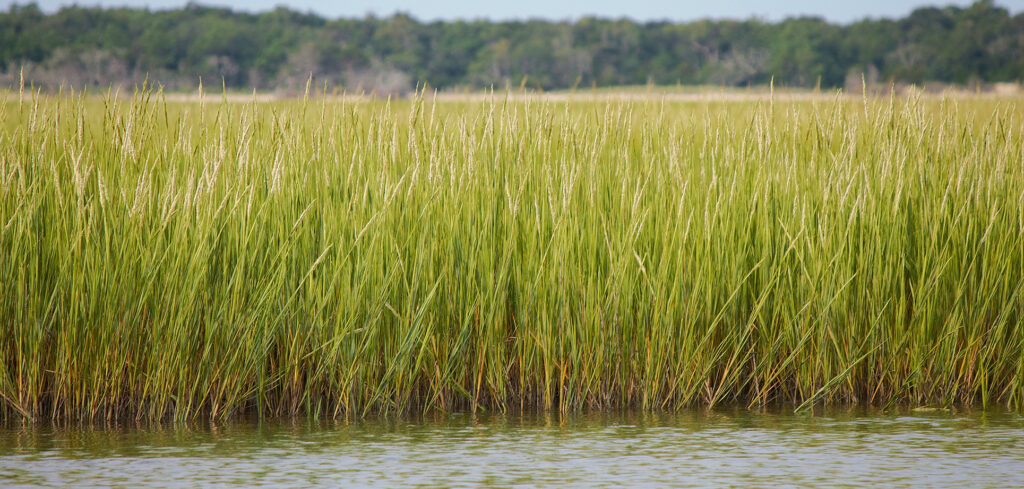
Wetlands serve as a buffer for coastal areas during flooding events and serve as a natural filter for pollution. The EPA’s rollbacks of wetland protections earlier this year put the health of the rivers and communities at risk. (North Carolina Department of Environmental Quality)
The Southern Environmental Law Center, on behalf of Sound Rivers, Sound Rivers’ Riverkeepers and the North Carolina Wildlife Federation, weighed in last week on the 2021 Amendment to the North Carolina Coastal Habitat Protection Plan.
“We applaud the authors of the amendment for providing a clear-eyed assessment of the challenges our coast faces, particularly regarding our coast’s declining water quality. From climate change to stormwater, the amendment provides a well-documented and devastating assessment of the future of our coast unless we collectively act now,” the comments read.
Highlights included the following:
- DEQ should improve water quality through better use of existing authority as well as adopting proposed standards.
- New standards are needed to protect submerged aquatic vegetation. According to the Clean Water Act, North Carolina is responsible for ensuring that its laws serve the purpose of restoring and maintaining “the chemical, physical and biological integrity of its waters” — protecting estuarine habitats, including submerged aquatic vegetation, is necessary to meet North Carolina Department of Environmental Quality’s legal obligation.
- DEQ must enforce existing laws during the permitting process for National Pollutant Discharge Elimination System program, point sources discharging through groundwater, sediment and erosion control permits and municipal separate storm sewer systems permits.
- The state needs to improve its current water infrastructure system through better and equitable funding, regional planning, incentives for creating efficient, consolidated utilities that expand water access, consolidation of “failing” systems and customer assistance programs ensuring clean water for all North Carolinians.
- The Coastal Habitat Protection Plan should support the wetlands rules proposed by the Environmental Management Commission, as wetlands play a critical role in protecting coastal water quality.
- Climate change’s forecasted effect calls for more extreme rain events, leading to increased loading of nitrogen, phosphorous and other pollutants from agricultural and urban environments. This means the state must update storm values necessary to calculate stormwater control measures.
The comments closed with:
“The challenges facing our coastal ecosystems are significant. Climate change, poor water quality, and development pressure would, independently, make protecting our coastal resources difficult. North Carolina must face them in combination. We appreciate the Steering Committee’s efforts to summarize those challenges in the Draft Amendment and believe that the recommendations presented will advance coastal habitat protection in the state. We recommend a greater focus on DEQ’s existing authority and the need for protective discharge and stormwater permits in addition to increased enforcement. The CHPP should also recommend more sweeping changes to our state’s water infrastructure system — changes that allow for equitable distribution of infrastructure funding, more efficient provision of drinking and wastewater services, and less water pollution from failing or overrun systems.”
Related News
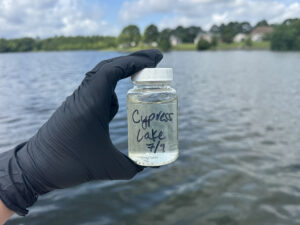
Specialist investigates lake connection to mysterious skin rash
July 10th 2025
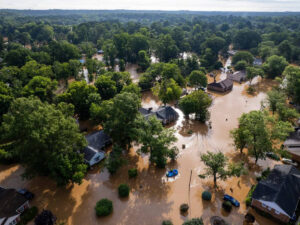
Riverkeeper: Central NC flooding part of a much larger issue
July 10th 2025

N.C. Governor vetoes bad rulemaking bill
July 10th 2025

Riverkeeper, program director ‘Growing More than Rain Gardens’
July 10th 2025

Volunteer coordinator goes ‘fishing’
July 10th 2025
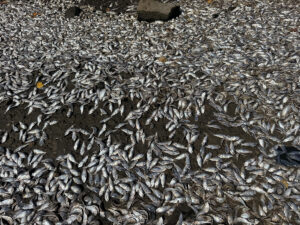
Neuse fish kill expected to extend beyond holiday weekend
July 3rd 2025
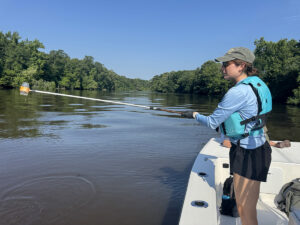
Swim Guide fails prompt Maple Cypress investigation
July 3rd 2025

Riverkeeper, town partners root out source of Smithfield sediment pollution
July 3rd 2025
